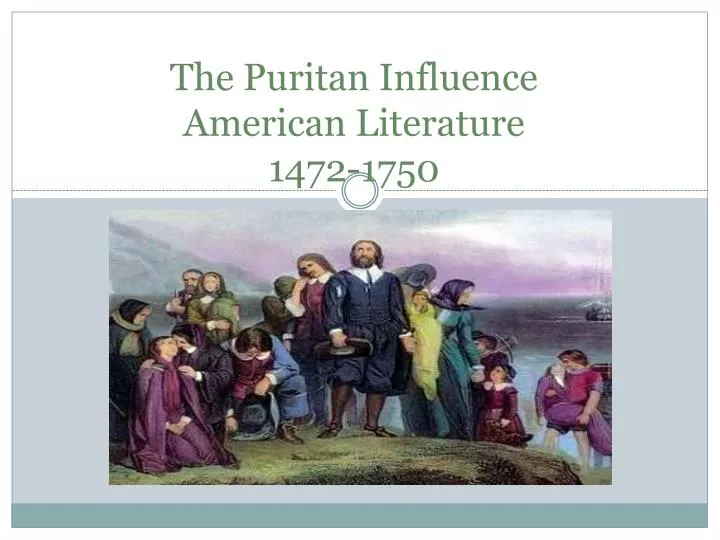Transcendentalism is a literary and philosophical movement in New England in the early and middle part of the 19th century. It gave expression to several strains of thought :
1)
the
weakening of Calvinistic views about the corruption of human nature;
2) the rise of Romantic attitudes toward the pervasiveness of the divine and the inherent power of the individual imagination;
3)
and the frustration with what was seen as the polite and unemotional rationalism of
Unitarian thought.
Once considered to have derived from European movements, it is now
generally seen as a development of native tendencies. Centered on Boston
and Concord, some of its most notable voices were those of Ralph Waldo
Emerson, Henry David Thorean, Walt Whitman, Edgar Allan Poe, Herman
Melville, Nathaniel Hawthorne, Margaret Fuller and Bronson Alcott. The British writers such
as William Wordsworth, Samuel Taylor Coleridge and Thomas Carlyle
profoundly influenced these writers.
Transcendentalism
was opposed to the idea that man needed an intercessor through which to
reach the divine, and was critical of formalized religion.
Like the physical universe
itself, all constructive practical activity, all great literature, all forms
of spiritual
awareness were viewed as an expression of the divine spirit.
The oft- expressed ambition
was to achieve vivid perception of the divine as it operates in common life, an
awareness seen as leading at once to personal cultivation and to a sense of history as
an at least potentially progressive movement.
1 Explain the meaning
of the term 'Transcendentalism' and show its treatment in 19th
century
American Literature?
Like Puritanism,
Transcendentalism also played an important role in the 19th century
American literature. The pioneers of this
movement not only enriched American literature but also paved the way
for the coming writers. In addition to this,
these pioneers broke out the old traditions and established their own
distinctive form of literature.
Transcendentalism
was a philosophical dissent from Unitarianism, which represented the compromise of rational Deism with
Calvinism, relating to the rationalist's acceptance of liberal scientific
thought and rejecting extreme concepts concerning the original depravity
and the inherited guilt of man. The rising young transcendentalists
asserted that the Unitarian creed had become conventional and
complacement in its orthodox fidelity to Christian dogmas of
supernaturalism. They rejected Locke's materialistic psychology in favour of
the
idealism of the German thinker Immanuel Kant who declared that the "transcendental" knowledge in the mind of man was innate. Following the philosophy of Kant,
they asserted the doctrine of correspondence between the microcosom of the
individual mind and the macrocosom over-soul of the universe,
and they derived an
enlarged conception of the sanctity of the individual and his freedom to follow
his intuitional knowledge.
The
American Transcendentalists were influenced by British writers as Wordsworth, Coleridge
and Carlyle; Kant, Hegel, Fichte, Schelling, Goethe, Richter, Harder influenced
the transcendentalists with their philosophy; Greek philosophers like Plato, the
Sufis, and the writers of the Upanishads and the Bhagavad-Gita, and the Buddhists and
the eclectic idealists profoundly influenced the transcendentalists. These
transcendentalists used to meet at Emerson's
Concord house, and through their
magazine The Dial, they published their philosophy.
"Book
Farm" (1841) and
"Fruit Lands" (1842) were agrarian experiments in communal living, supported briefly
by the transcendentalists concerned with the social order.
'Nature' was the first comprehensive expression of American Transcendentalism. Emerson
provided a fresh and lyrical intimation of many of the leading ideas that
developed in various essays and poems.
Thoreau's transcendentalism was empirical, not theological. He did what he felt to be right and publicly opposed what he felt to be wrong. If Emerson believed in Man, Thoreau believed in men. Both were the party of Hope against the party of Memory, and were symbolic of a New England turn from Calvinism through Unitarianism to a belief in man. Both wrote and lived as if the 'American Adam' were more possibility than myth. Walden is his famous book.
Whitman came to transcendentalism by way of his mother's Quakerism, and Carlyle's and Hegel's writings, but Emerson was the immediate influence. The Leaves of Grass was his mommental work. Through his book, he taught the philosophy of democracy. He believed in the transforming power of love in humanity and in life. Whitman was theoretically the answer of Emerson's prayer, as he was also the voice of the land of Promise, the first wholly unique one to emerge from American continent. Nathaniel Hawthorne satirized Book Farm in his novel The Blithedale Romance. The Scarlet Letter was his another novel in which he has bitterly satirized Puritanism. Herman Melville satirized Puritanism in his novel Moby Dick.
These
transcendentalists – Emerson, Thoreau, Hawthorne, Melville, Whitman – seem to differ from
one another more than they agree. First, they are divergent
in temperament; second,
they are different in their choice of subject matter and literary form; thirdly, they
differ in their interest and capacity for sustained philosophical thought. Despite
their differences, they have certain common things.
These writers have a profound
sense of human predicament. They are worried about the problem of man. They
all believe that individual virtue and happiness depends upon self realization and the
self realization depends upon the harmonious reconciliation of two
universal psychological tendencies. The five writers have a
common assumption. They
think that intuition and imagination offer a surer road to truth than abstract logic or
scientific method. Finally, these five
writers were able to deduce a consequence of
immense practical importance not only for their own work but for the subsequent course
of American literature as a whole.
To conclude,
American literature of 19th century
was developed, and enriched by these writers. They
are unforgettable for their philosophy. They prepared the way for the coming
writers.


